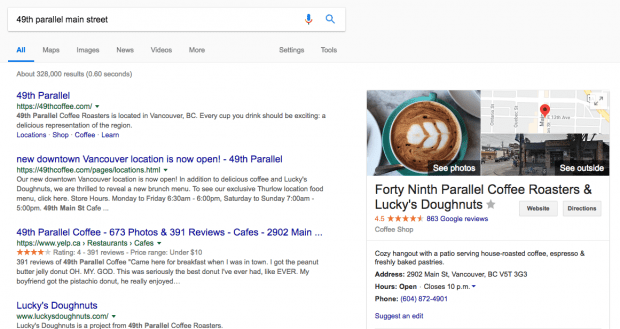
By: David Jenkins and Chris Avery, founders and partners at digital marketing agency Mickey Llew, unpack trends and analyse how they will transform the industry in the future.
Google search marketing saw an upswing in technologies such as chatbots, voice search, image searches and enhanced search engine results (SERP) features in 2018.
While these will continue to play a role, the evolution of search in 2019 will be largely driven by three key elements: Google My Business, advertising automation, and SEO algorithm updates.
David Jenkins and Chris Avery, founders and partners at digital marketing agency Mickey Llew, unpack these trends and analyse how they will transform the industry in the future.
1. Google My Business

Consumers are engaging with Google in a much more localised way, especially in service and restaurant related industries, leading brands to directly craft their public business profiles through the Google My Business tool.
A Google My Business strategy is a bespoke approach to search marketing that is largely still misunderstood, and not yet a strong strategic agenda for businesses – although it should be! With changing user habits, businesses should already be allocating at least 25% of their Google Search budgets in this area.
Getting a Google My Business strategy working takes time, as it’s not a pay-per-click or impression model – it’s meticulous work that takes hours to do. However, in the first month of rollout it can substantially improve Google search rankings, visitor traffic and engagement by as much as 60%.
2. Advertising automation
Google can now automatically determine the most effective combinations of ads to maximise spend through dynamic search and display ads.
This can save developers, search practitioners, website owners and marketers time and money. This is especially important for small businesses who run on tight budgets, which can generate more leads using this tool, for the same amount of money.
3. Algorithm updates
With as many as 600 algorithm updates a year since it launched in 2008, Google still hasn’t been able to eliminate all forms of manipulation. There will always be ways for people to game the system but the most obvious tricks have been dealt with and Google has improved its ability to generate the most relevant search results for users.
For instance, Google is no longer just looking for key-word mentions – artificial intelligence can now see the context in which certain phrases and words are used in relation to brands.
Available data shows vast improvements in engagement rates for searches relative to clicks and sales conversions in e-commerce. In coming years, search results will continue to become more intuitive and almost totally predictable based on how much access users give to Google and other tools to their personal information and browsing history.
While these trends will be central to search marketing, they need to be integrated into a holistic strategy that focuses on creating great content for search engine optimisation (SEO).
As Google finetunes its ability to deliver more relevant search results through algorithm tweaks, your website’s ability to deliver valuable information and high-quality content will determine how well it performs.






